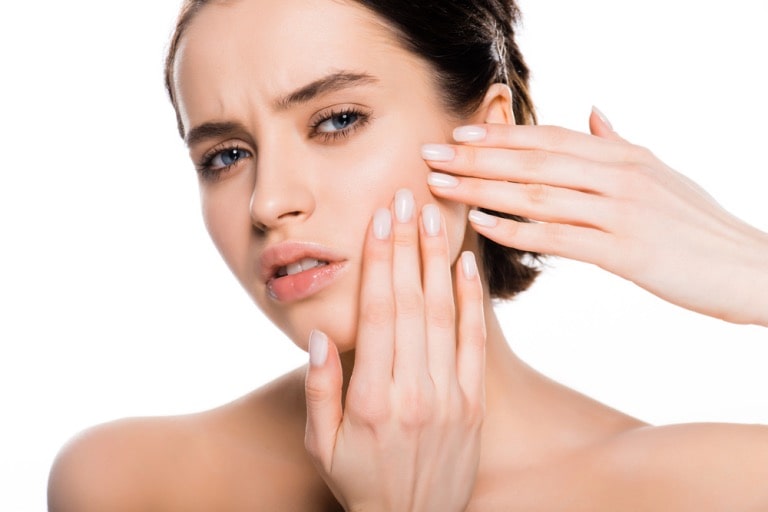6 Health Risks of Habitual Cheek Biting

Cheek biting, whether conscious or unconscious, is a behavior that can stem from stress, anxiety, or even as an oral fixation habit. While it may seem harmless at first glance, habitual cheek biting can lead to serious health concerns over time. Let’s explore six potential health risks associated with this behavior and understand why addressing it is important.
Strategies to Overcome Cheek Biting
Breaking the habit of cheek biting often requires a combination of awareness and strategic interventions. If you’re searching for comprehensive guidance, resources on how to stop cheek biting provide practical advice and solutions tailored to different needs. Identifying triggers such as stress or boredom is a crucial first step.
For some, practicing mindfulness techniques can help reduce the frequency of the habit, while others may find relief through behavioral therapy or the use of dental guards. Addressing underlying issues, such as anxiety, with professional help can also be beneficial.
1. Risk of Oral Infections
One of the most immediate concerns of chronic cheek biting is the heightened risk of oral infections. When the delicate tissue inside the cheek is repeatedly bitten, it creates open sores or wounds. These openings in the tissue can serve as entry points for bacteria and viruses, leading to localized infections.
Over time, these infections can cause swelling, pain, and in severe cases, may spread to other parts of the mouth or body. Maintaining good oral hygiene and seeking medical attention for persistent wounds is essential to prevent complications.
2. Development of Painful Mouth Sores
Habitual cheek biting often results in the formation of canker sores or ulcers in the mouth. These sores can be intensely painful, especially when eating, drinking, or speaking. The constant irritation caused by biting not only prolongs the healing process but may also lead to larger or more persistent sores.
In some cases, these sores can become a chronic issue, significantly impacting an individual’s quality of life and ability to enjoy meals or social interactions.
3. Potential for Tissue Scarring
Over time, repeated trauma to the inner cheek can lead to scarring of the soft tissue. These scars may not only cause aesthetic concerns but can also result in a feeling of tightness or restricted movement in the mouth. Additionally, scar tissue is less resilient than healthy tissue, making it more prone to further injury. This creates a vicious cycle of damage and healing that can be difficult to break without intervention.
4. Increased Risk of Oral Cancer
Though rare, chronic cheek biting has been linked to an increased risk of developing oral cancer. Repeated trauma to the same area of tissue can lead to cellular changes, which in some cases may become precancerous or malignant.
While cheek biting alone is not a direct cause of oral cancer, it can be a contributing factor, particularly when combined with other risks like tobacco use or poor oral hygiene. Regular dental check-ups are crucial for early detection and prevention of serious conditions.
5. Disruption of Dental Health
Habitual cheek biting can also negatively impact overall dental health. Repeated biting motion can lead to misalignment of the teeth over time, especially if the habit causes uneven wear on specific teeth. Additionally, sharp edges from damaged teeth or dental work can exacerbate the habit, causing more severe injuries to the inner cheek. Addressing cheek biting early can prevent these dental complications and preserve the integrity of your smile.
6. Psychological and Emotional Impacts
Beyond its physical effects, habitual cheek biting can have a profound psychological and emotional toll on individuals. For many, the behavior is deeply tied to stress, anxiety, or other emotional triggers, often serving as a subconscious coping mechanism in challenging situations.
While it may provide a momentary sense of relief or distraction, the aftermath can lead to feelings of shame, guilt, or frustration, especially when the habit becomes noticeable or results in visible sores and scarring. Over time, these feelings can intensify, creating a cycle of stress that perpetuates the behavior.
In some cases, habitual cheek biting is classified as a body-focused repetitive behavior (BFRB), a condition that shares similarities with other compulsive habits like nail-biting or hair-pulling. Individuals with BFRBs often feel a loss of control over their actions, which can further impact their self-esteem and confidence.
Social interactions may become stressful or embarrassing, especially if others notice or comment on the habit. This can lead to feelings of isolation or withdrawal from social settings. Cheek biting may appear to be a minor issue, but its impact on oral and overall health can be significant.
From the risk of infections and sores to long-term effects like scarring and potential cancer risks, the consequences of habitual cheek biting should not be overlooked. By understanding these risks and seeking appropriate solutions, individuals can take proactive steps to protect their health and well-being.





